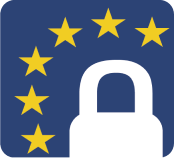Want to know more about the legal aspects in different countries?
check our legality guide hereFor queries or feedback, write to us at support@zohosign.com

The eIDAS regulation
The eIDAS (electronic IDentification, Authentication and Trust Services) regulation was established under EU regulation 910/2014, replacing the eSignature Directive of 1999/93/EC beginning on June 30, 2016. This new set of regulations was drafted to oversee electronic identification and trust services for transactions in the European Union's internal market. eIDAS considers authentications, signature seals, registered delivery services, and time stamps in order to regulate electronic signatures, transactions, and embedding processes for transactions between public or private services. eIDAS strengthens the document signing process by making it extremely convenient and highly secure.
Types of electronic signatures as defined by eIDAS
According to eIDAS, electronic signatures are broadly categorized into three types:
Simple electronic signatures
This is the simplest form of signature. It isn't protected by any encryption method, making it less secure than the two other types of signatures. Typically, simple electronic signatures are reserved for basic business transactions.
Advanced electronic signatures
An advanced electronic signature is a simple signature with some additional elements to enhance the document's authenticity and security. The requirements for an advanced electronic signature are:
- It must be uniquely linked to the signatory.
- It must be capable of identifying the signatory.
- It must be created using data that the signatory can use under their sole control with a high level of confidence.
- It must be linked to the signed data in such a way that any subsequent change in the data is detectable.
Qualified electronic signatures
A qualified electronic signature is an advanced electronic signature that is created using a secure signature creation device (SSCD) and based on a qualified certificate for electronic signatures. An SSCD can either be local (e.g., USB tokens, smart cards) or remotely managed by a SSCD provider. Qualified certificates are issued by public or private providers who have been granted "qualified" status by the National Competent Authority, as indicated in the EU Trusted Lists.
Legal admissibility of electronic signatures under eIDAS
According to eIDAS:
- No electronic signature should be denied legal effect or admissibility in court solely because it is not an advanced or qualified electronic signature. eIDAS does not prevent any member state from accepting any type of electronic signature.
- A qualified electronic signature has the equivalent significance of a hand-written signature.
Zoho Sign and eIDAS
Zoho Sign is an electronic signature solution that offers digital signatures compliant with advanced electronic signature standards as defined by eIDAS. Documents signed or sent using Zoho Sign are legally binding and can be admissible in the court of law. Learn more